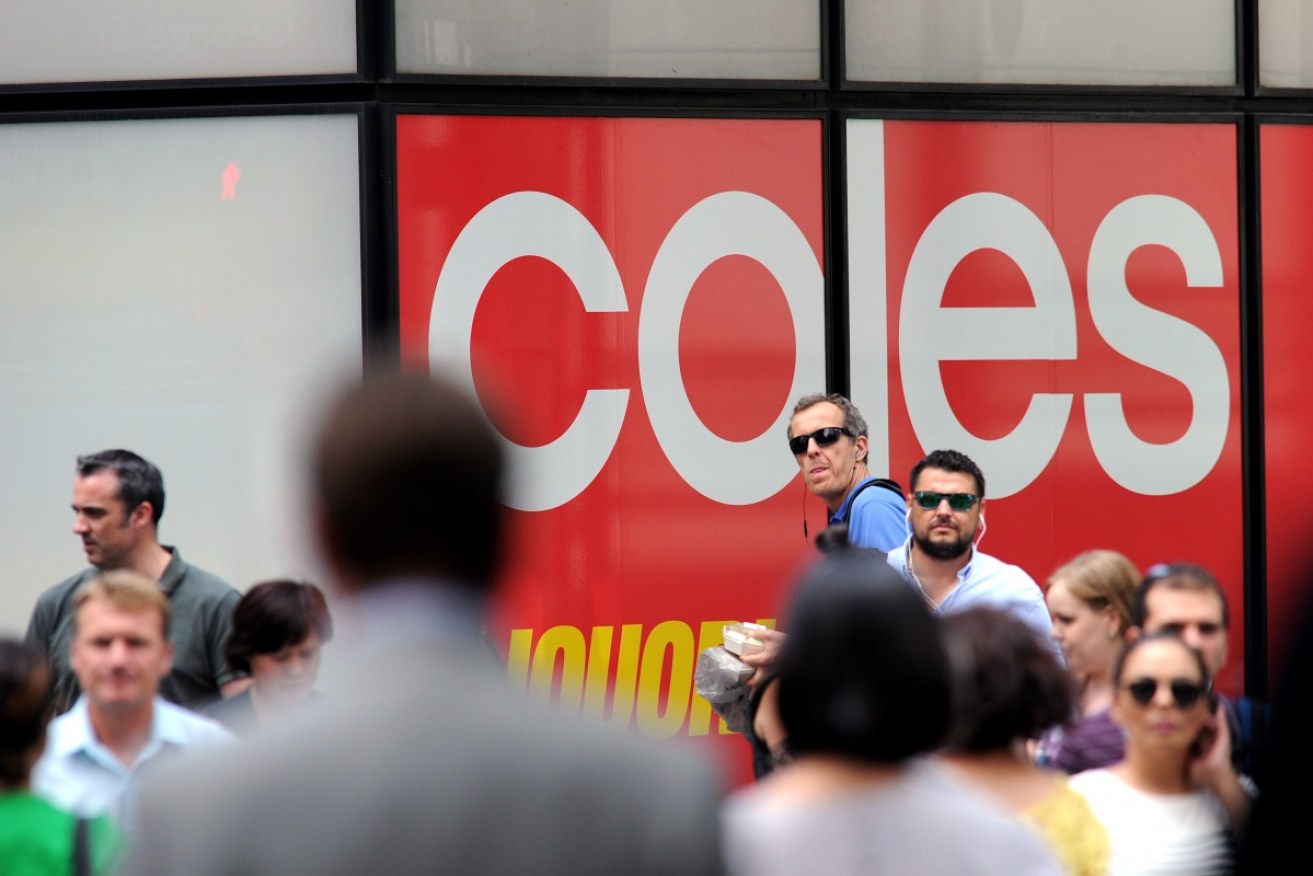The price shock awaiting shoppers at Coles


Coles intends to save $1 billion in four years, through increased automation and job cuts. Photo: AAP
For months The New Daily has been covering the squeeze created by flat wages and the rising cost of living, but what can households do to save a buck?
A number of times I’d told my editor about the bargain groceries available at small independent supermarkets in Melbourne’s inner west – especially Footscray and Sunshine where I have shopped for years.
“Can you back that up?” he asked earlier this week, and so I set out with a fistful of dollars to prove the point.
These are mostly not franchise supermarkets, but specialty shops catering primarily to communities that have arrived in successive waves of migration over the past four decades – especially Vietnamese, Indian and Horn of Africa ethnic groups.
Some shops offer unlikely combinations of goods – fashion, cooking utensils, and maybe a bit of travel or insurance broking next door – but also great pallets of cheap flour, rice, fresh vegetables, spices and so on.
The shock, when I set out to test the ‘cheap groceries’ theory, is that my preconceptions were wrong when I pitted one Vietnamese-run supermarket against the nearest ‘big two’ supermarket, Coles.
The goods in the table below were selected mainly because they appeared on shelves of both shops – so a household that used more of the specialty goods, such as the near-infinite varieties of dried fish, great bags of ground spices and multitude of noodle-types, would save a motser.
But on the like-for-like comparison, one simple fact became clear. The Coles prices are much higher, until you allow for discounting. Of the 17 items listed below, just over a third were on special.
So on ‘normal’ prices, Coles would be 13 per cent more expensive, but since it always has specials on many items, there was virtually no difference.
The economics behind this phenomenon are pretty simple.
Coles has a massive economy of scale in its supply chain, which brings costs down, but also offers shoppers a more expensively produced ‘brand experience’ – it promises clean aisles, large product ranges, and that nearly everything will be in stock all of the time.
The independent shop had plenty of gaps on the shelves, and many items it never stocks, so a time-poor shopper might turn towards Coles where the pak choy is overpriced (see above), but where they have eight brands of coffee to choose from instead of one.
Conversely, a cash-poor shopper could feed a family from the independent store with fresh ingredients for just a few dollars, but they’d have to base the recipe on what they find there on the day.
Another big difference is related to what economists call the ‘informal economy’.
Coles and the other big supermarkets have unions, the Australian Consumer and Competition Commission, the tax office and other regulators breathing down their necks to make sure every worker is insured, every contract is legal, every supply-chain truck safe, every OH&S rule obeyed.
Smaller businesses, especially family businesses, are not watched so closely. Wage records can be fudged a bit, corners cut with staff safety or insurance, and undocumented transfers of stock can cut tax bills.
However, Peter Strong, chief executive of the Council of Small Business of Australia (COSBA), says that if independent traders take that road they are exposing themselves to higher risks.
“Our attitude is that the rules are the rules,” he says. “The informal aspect may give them a competitive edge, but given what’s happened with the 7-Eleven stores and others, it’s clear that eventually their turn will come.”
Even if he’s right, that doesn’t mean these small, nimble competitors will vanish – mainly because the big boys are getting less cut-throat in their business practices.
Mr Strong points out that whereas Coles was in a world of trouble a couple of years ago for exploiting and manipulating its suppliers, and forcing small competitors to the wall via heavy discounting, those times have changed.
“They really were screwing their suppliers, but what we’re hearing is that Coles in particular has worked hard to fix those problems. We’re seeing a big improvement from a couple of years ago – I think they’ve woken up to the fact that their reputation was suffering.”
The cheap grocers and supermarkets of Melbourne’s west, which are replicated in pockets of all Australian capitals, add real richness to the retail landscape and, in some product lines, intense price competition to the major supermarkets.
On that basis alone, long may they flourish. But as for being dramatically cheaper, as I first thought, it really does depend on what you’re after.








